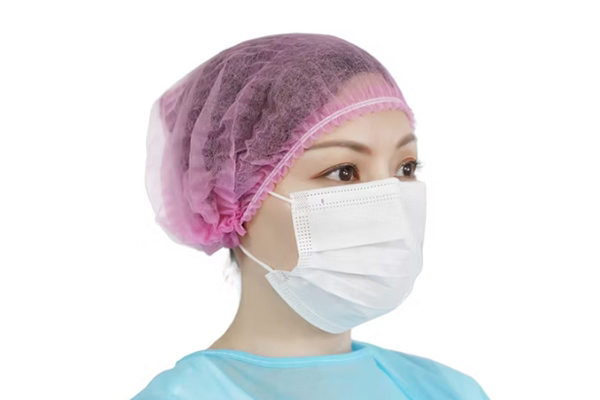The COVID-19 pandemic brought face masks to the forefront of public health measures, with masks becoming a common part of everyday life. While face masks are widely recommended for protecting against the spread of respiratory viruses, many people may wonder if they are sterile, especially when it comes to medical-grade masks like N95s or surgical masks. The question of whether a face mask is sterile is an important one, especially for healthcare settings or situations where the highest level of hygiene is required. In this article, we will explore what “sterile” means in the context of face masks, whether all masks are sterile, and how to ensure proper mask usage.
What Does “Sterile” Mean?
Before we dive into whether face masks are sterile, it’s essential to understand what the term “sterile” refers to. In medical and healthcare contexts, “sterile” means completely free from all viable microorganisms, including bacteria, viruses, fungi, and spores. Sterilization is a process that kills or removes all forms of microbial life, and sterile items are typically sealed in packaging to maintain their uncontaminated state until use.
Sterile items are typically used in surgical procedures, wound care, and other settings where the highest level of hygiene is crucial. Sterility is achieved through various methods, such as autoclaving (using high-pressure steam and heat), gamma radiation, or chemical sterilization. These processes ensure that the items are free of any microbial contamination, minimizing the risk of infections or complications.
Are Face Masks Sterile?
Face masks, in general, are not sterile when they are sold for consumer or public use. Most commonly available face masks, including cloth masks, disposable surgical masks, and even N95 respirators, are manufactured in environments that may be clean but are not necessarily sterile. These masks are designed to act as barriers to respiratory droplets, dust, or other particles, but they are not subjected to the sterilization processes required for sterile medical equipment.
The primary purpose of face masks, particularly in non-medical settings, is to reduce the spread of germs, not to create a completely sterile environment. Masks are designed to be clean and free from contaminants to ensure that they function properly, but they do not guarantee sterility unless explicitly labeled as “sterile.”

When Are Face Masks Sterile?
While most everyday face masks are not sterile, sterile masks do exist in the market. These are typically specialized medical-grade masks used in healthcare settings, where sterility is of the utmost importance. For example, sterile surgical masks and sterile N95 respirators are used in surgeries or procedures where a high level of infection control is necessary. These masks undergo sterilization processes to ensure they are free of any microorganisms before they are packaged and sold.
Sterile masks are usually packaged in sealed, sterile pouches to maintain their sterility until they are opened and used. This packaging ensures that the mask remains uncontaminated during storage and transportation. Sterile masks are typically used by healthcare professionals in environments such as operating rooms or intensive care units, where even the smallest risk of infection can have serious consequences.
For most consumers, however, standard surgical or cloth masks will suffice for everyday use. These masks are still effective in reducing the spread of respiratory droplets, which is their primary function in public health. However, unless they are specifically labeled as sterile, they should not be considered sterile.
How to Ensure Mask Hygiene
Even though most face masks are not sterile, they can still be used effectively with proper hygiene practices. Here are some tips to ensure your mask is clean and safe to wear:
- Use Masks as Directed: Follow manufacturer instructions on proper mask use and disposal. Disposable masks like surgical masks and N95 respirators should be used only once. Cloth masks should be washed regularly with soap and water.
- Avoid Touching the Inside of the Mask: When putting on or taking off a mask, avoid touching the inside, as it may have come into contact with respiratory droplets. Always handle the mask by the straps or ear loops.
- Wash Cloth Masks Regularly: Cloth masks should be washed after each use to maintain cleanliness and effectiveness. Use hot water and detergent to remove any contaminants.
- Store Masks Properly: Store your mask in a clean, dry place when not in use. Avoid keeping it in pockets, bags, or places where it might become contaminated.
- Use Sterile Masks for Medical Purposes: If you’re working in a healthcare setting or are undergoing a surgical procedure, use only sterile masks that are sealed in sterile packaging. These masks are specifically designed to reduce the risk of infection during medical procedures.
Conclusion
In summary, most face masks are not sterile, but they are designed to be clean and effective for their intended purpose. While surgical masks and N95 respirators are manufactured in controlled environments, they are not sterile unless specifically labeled as such. For everyday use, masks are an important tool for reducing the spread of respiratory droplets, but they should not be expected to be free of all microorganisms unless explicitly indicated.
Sterile masks are available and are used in specific medical contexts where sterility is required, such as surgeries and certain healthcare procedures. However, for the majority of people using face masks in daily life, it’s more important to focus on proper mask hygiene—such as regular washing of cloth masks and proper disposal of disposable masks—rather than worrying about sterility.
By understanding the difference between sterile and non-sterile masks, as well as following best practices for mask use, we can all contribute to a safer and more hygienic environment for ourselves and others.
Post time: Nov-06-2024





